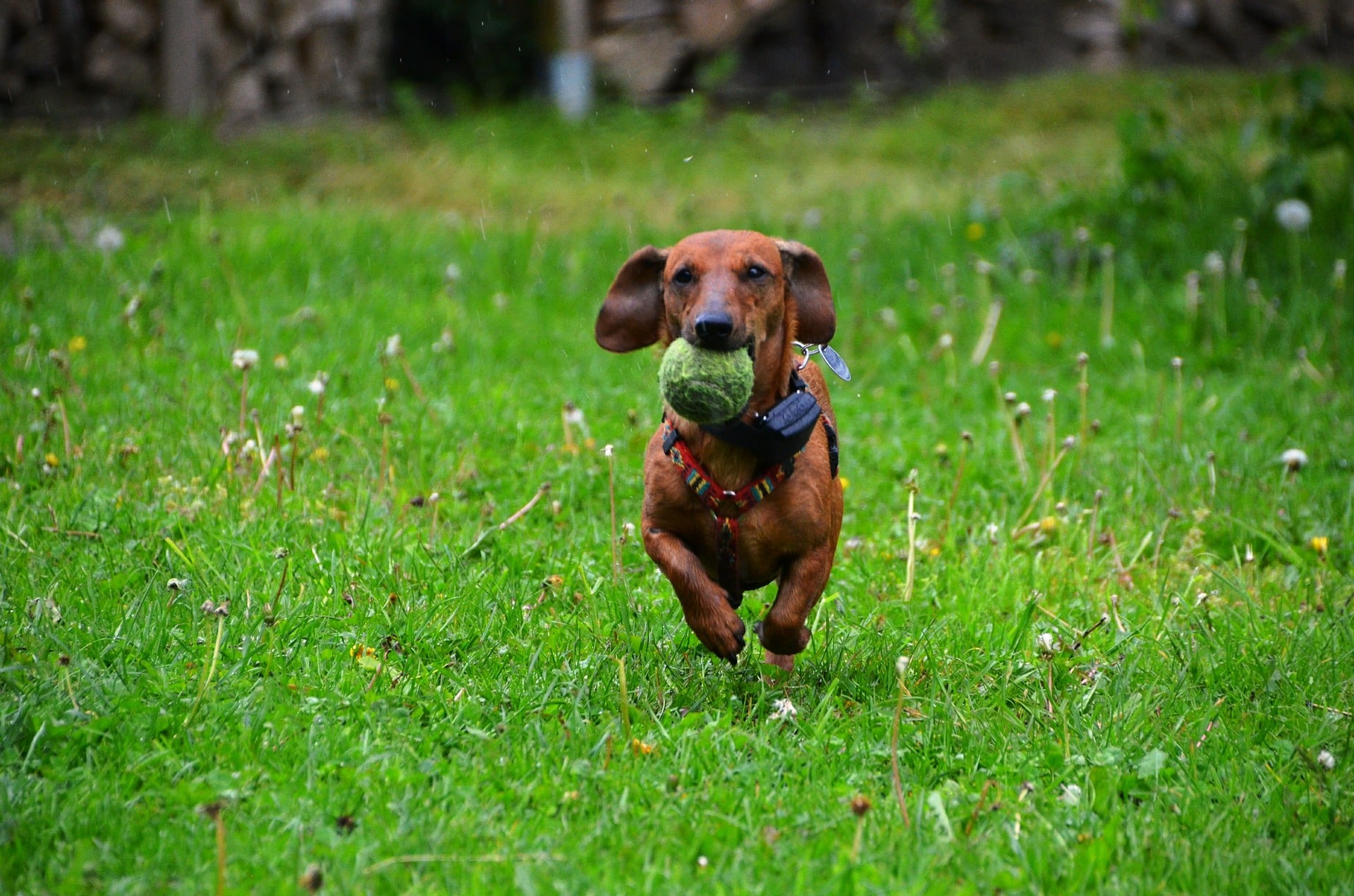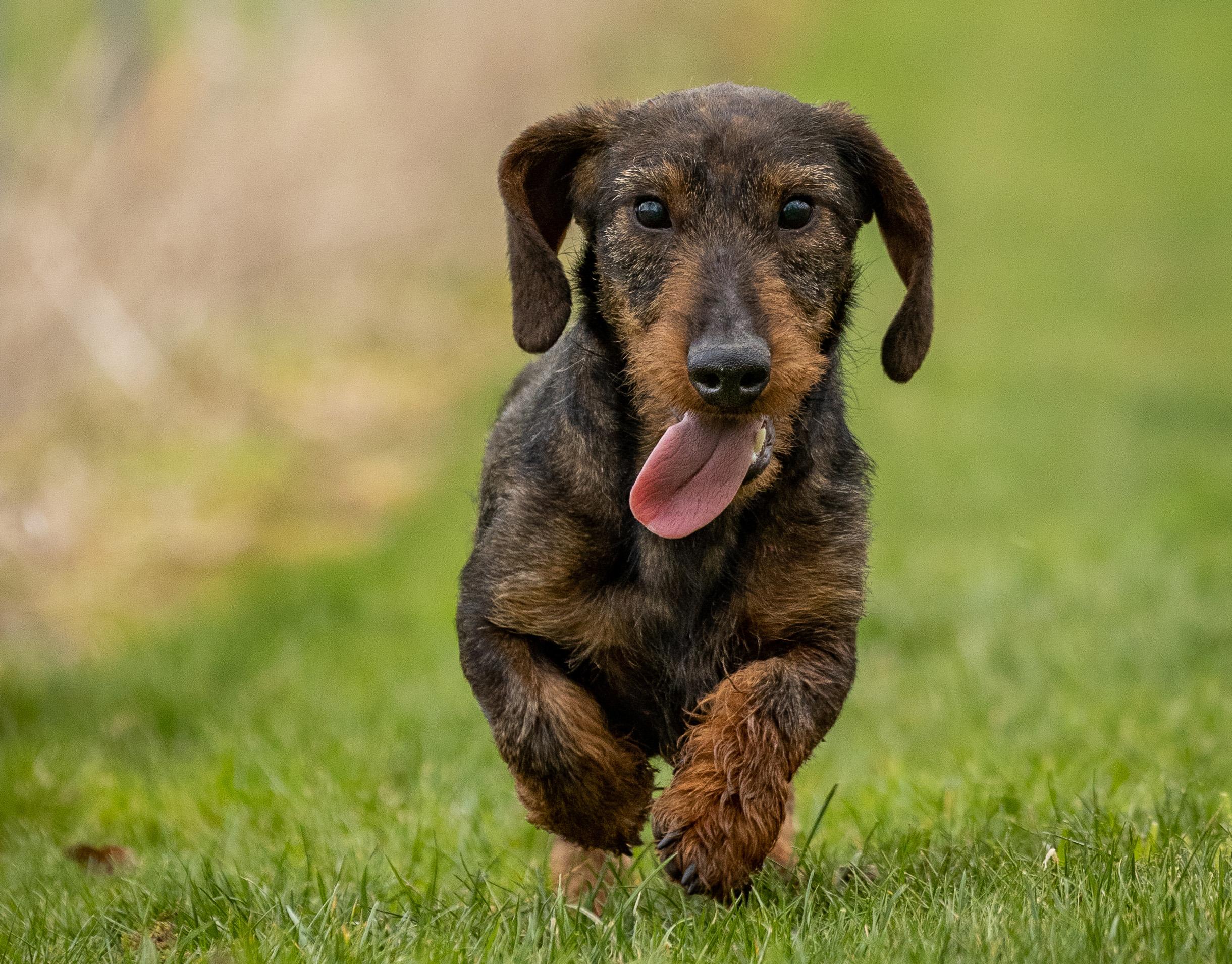The dachshund, with its long, low-slung body and perky ears, is a beloved breed around the world. These charming canines are known for their playful personalities, unwavering loyalty, and a healthy dose of stubbornness. But beyond the cute exterior lies a complex tapestry of temperament, influenced by various factors ranging from genetics to upbringing. Understanding these nuances can help potential owners make informed decisions and prepare for the unique challenges and joys of sharing their lives with a Dachshund.
Contents
The Energetic and Playful Nature of Dachshunds

Dachshunds are energetic and playful dogs, always eager for adventure and fun. This is not surprising considering their heritage as hunting dogs. Their natural instincts drive them to explore and chase, making them excellent companions for active individuals or families. However, this high energy level means that Dachshunds require plenty of exercise and mental stimulation to avoid boredom and destructive behavior.
Exercise Needs
Due to their compact size, many people assume that Dachshunds do not need much exercise. However, this is far from the truth. While they may not require the same amount of exercise as larger breeds, Dachshunds still need regular physical activity to keep them happy and healthy. A daily walk or play session in the yard is essential to satisfy their energetic nature.
Additionally, it is crucial to provide mental stimulation for Dachshunds through games, puzzle toys, and training exercises. This not only keeps them physically fit but also helps prevent behavioral issues that may arise from boredom.
Fun-Loving and Playful
Dachshunds are naturally curious and love to play. They have a mischievous streak that makes them entertaining and endearing to their owners. They enjoy playing fetch, tug-of-war, and other interactive games with their human family members. This playfulness also extends to other animals, and Dachshunds can often be found chasing birds or squirrels in the yard.
Their playful nature means they are great companions for children, but supervision is necessary to ensure that rough play does not lead to injuries, both to the dog and the child.
Potential for Destructive Behavior
While Dachshunds may have a playful and fun-loving nature, they can also become destructive if left alone for extended periods. This is because their high energy levels need an outlet, and when they are bored, they may resort to chewing furniture, digging, or excessive barking.
To prevent this behavior, it is essential to provide your Dachshund with plenty of toys, exercise, and mental stimulation. Crating them while you are away can also be helpful in avoiding destructive behavior.
Loyal and Affectionate Companions: The Dachshund’s Bond with Humans

Dachshunds are incredibly loyal and affectionate towards their human family members. They form strong bonds and thrive on being near their owners. This loyalty plus their playful and loving nature makes them excellent companions for single individuals, couples, or families.
Separation Anxiety
Due to their attachment to their owners, Dachshunds can experience separation anxiety when left alone. This manifests in various ways, including excessive barking, destroying items, or even self-harm. It is crucial to address this issue early on by gradually increasing the amount of time your Dachshund spends alone and providing them with plenty of toys and activities to keep them occupied.
Protective Instincts
Dachshunds may be small in size, but they have a big heart and a strong protective instinct towards their owners. They are known to bark at strangers and may also show aggression towards unfamiliar people or dogs. Early socialization and training can help curb this behavior and teach them appropriate ways to interact with others.
A One-Person Dog
Despite their love for all family members, Dachshunds often form a special bond with one person in the household. This is not surprising considering their history as companion dogs, bred to be devoted to their owners. While they may show affection to other family members, they will always have a preference for their chosen person.
Training and Socialization: Shaping a Well-Adjusted Dachshund

Training and socialization are crucial for all dog breeds, but they are especially important for Dachshunds due to their strong hunting instincts and potential for stubbornness. Early training and socialization can help shape a well-adjusted Dachshund and prevent behavioral issues down the road.
Begin Training Early
Dachshunds are intelligent dogs, but they can also be stubborn and independent. This means that training may require patience and consistency. It is essential to begin training your Dachshund from an early age to establish yourself as the pack leader and prevent any unwanted behaviors from becoming ingrained.
Positive reinforcement techniques work best with Dachshunds, as they respond well to treats and praise. Harsh or punitive methods can damage the trust between you and your dog and hinder the training process.
Socialization is Key
Socialization is equally important for Dachshunds as it is for any other breed. They need to learn how to interact with other people, dogs, and animals to become well-rounded and friendly companions. This can include taking them on walks in different environments, introducing them to new people and animals, and enrolling them in puppy classes.
Early socialization can also help prevent fear-based aggression towards strangers, which is a common issue in Dachshunds.
House Training Challenges
House training a Dachshund can be challenging, as they are known to have a stubborn streak. Consistency and positive reinforcement are crucial in this process. It is also essential to remember that Dachshunds are small dogs and have a smaller bladder, meaning they may need more frequent potty breaks.
Understanding Dachshund Barking: Causes and Solutions

Dachshunds are known to be vocal dogs, and their barking can sometimes become excessive and problematic. While some barking is perfectly normal and used as a means of communication, it is essential to understand the potential causes of excessive barking and find solutions to address them.
Reasons for Barking
Dachshunds bark for various reasons, including:
- Alerting to potential danger or strangers
- Boredom or loneliness
- Separation anxiety
- Attention-seeking behavior
- Medical issues or pain
It is essential to observe your Dachshund’s barking patterns and try to identify the underlying cause to find the best solution.
Training and Exercise
As previously mentioned, Dachshunds require plenty of exercise and mental stimulation to prevent boredom and destructive behaviors. Regular walks and play sessions can help reduce excessive barking caused by pent-up energy.
Training can also be beneficial in curbing barking. Teaching your Dachshund commands such as “quiet” or “enough” can help them understand when barking is appropriate.
Addressing Separation Anxiety
If your Dachshund’s barking is due to separation anxiety, it is crucial to address this issue through gradual training and providing them with activities to keep them occupied while you are away. Crating can also be helpful in preventing destructive behavior and reducing barking while you are not at home.
Seeking Professional Help
If your Dachshund’s barking becomes excessive and difficult to manage, it is essential to seek professional help from a trainer or behaviorist. They can assess the situation and provide specific strategies to address the root cause of the barking.
Common Dachshund Personality Traits and Variations

While Dachshunds share many common personality traits, each individual dog is unique, with its own quirks and characteristics. However, there are some common variations in temperament that can be seen among Dachshunds.
Size Matters
Size plays a significant role in the temperament of Dachshunds. Miniature Dachshunds tend to have a more delicate personality, whereas Standard Dachshunds are often more outgoing and confident. This is not to say that one is better than the other, but it is essential to consider your lifestyle and preferences when choosing the size of your Dachshund.
Smooth vs. Long-Haired Dachshunds
Another variation in Dachshund temperament can be observed between smooth and long-haired varieties. Smooth Dachshunds tend to be more active and outgoing, while their long-haired counterparts are often more laid-back and reserved. This is not always the case, as individual personalities can play a significant role, but it is something to keep in mind when deciding which type of Dachshund is right for you.
Gender Differences
Like most breeds, male and female Dachshunds may have slight differences in their temperaments. Males tend to be more independent and dominant, while females can be more affectionate and easier to train. However, much of this depends on individual personality and upbringing.
Conclusion
The Dachshund’s temperament is a complex tapestry of traits influenced by their heritage, genetics, and upbringing. They are energetic and playful dogs, always eager for adventure and fun. Dachshunds form strong bonds with their owners and thrive on being near them, making them loyal and affectionate companions. Training and socialization are crucial for shaping a well-adjusted Dachshund, and understanding the causes of excessive barking can help prevent behavioral issues. While there may be some variations in temperament among different Dachshunds, they all share a unique and lovable personality that has captured the hearts of many dog lovers around the world.
